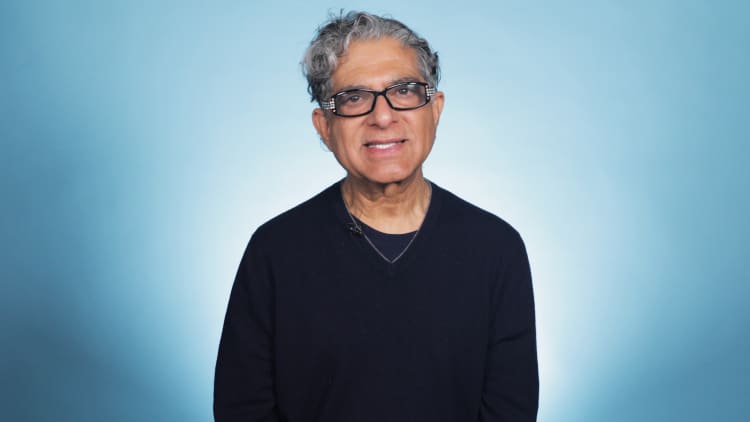Narcissistic personality traits — such as grandiosity, superiority and entitlement — have been on the rise in recent years, especially among high-profile leaders and successful CEOs. Although narcissists can be challenging to work with, they can easily attract a following of people, are more likely to receive promotions and often get paid more.
In fact, people who have high levels of narcissism also tend to be mentally tougher and have lower rates of depression and stress than their humbler peers, according to new studies out of Queen's University Belfast.
That's because many people with narcissistic traits are driven by the belief that they deserve the best in life.
"In their attempt to gain access to the resources that they think they deserve, [they] face many challenges," Kostas Papageorgiou, study author tells CNBC Make It. "Overcoming these challenges may help them build their mental toughness."
For the study, researchers surveyed more than 700 adults who exhibited clinical or "normal" levels of narcissism (which is different from having narcissistic personality disorder) and asked them about narcissism and mental toughness. Researchers also classified narcissism into two broad categories: "grandiose narcissism," which is characterized by exhibitionism and dominance, and "vulnerable narcissism," which is associated with negativity and distrust.
All of the evidence showed that grandiose narcissism tended to be correlated with traits that help you succeed, such as mental toughness, confidence and goal-orientation. And the confidence and sense of accomplishment that people exhibiting grandiose narcissism gained seemed to offset any negative feelings of stress and depression that those traits might otherwise cause.
"Grandiose narcissism appears to correlate positively with healthy self-esteem and extroversion," Papageorgiou says. These types of narcissists tend to be very confident, which is a good thing. (A vulnerable narcissist, on the other hand, might be overly sensitive.) A grandiose narcissist might not consider other people's opinions, which can help them focus on a goal, he adds.
"Certainly, healthy self-esteem is the way to go in most social situations," says Papageorgiou, but acting in narcissistic ways, like prioritizing yourself to further your own status and get ahead "may be more effective when facing a real challenge," he says.
Of course, narcissism also has negative consquences: Other research suggests that narcissists are destructive and volatile, especially in positions of power.
"We need to be able to dominate our personality instead of letting it dominate us," Papageorgiou says. "This is when problems emerge."
In truth, everyone has a little bit of narcissism in them, Papageorgiou says, and that doesn't have to be a bad thing.
"People are trying to adapt, survive and succeed in a social, political and economic environment that promotes the 'self-made' man or woman," and he believes his findings could reduce some of the pressure and negativity that comes with being seen as a narcissist.
In order to really succeed, though, narcissists also have to be competent, and have the humility to know when they need to adjust their behavior, Papageorgiou says. "An incompetent narcissist won't go far in the workplace or life," he says.
Like this story? Subscribe to CNBC Make It on YouTube!
Don't miss:



